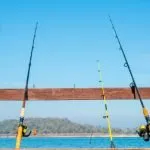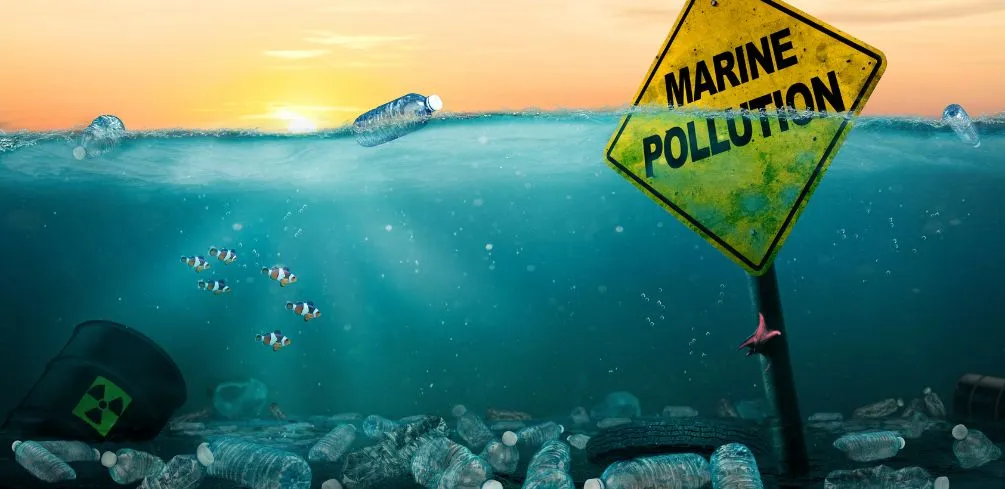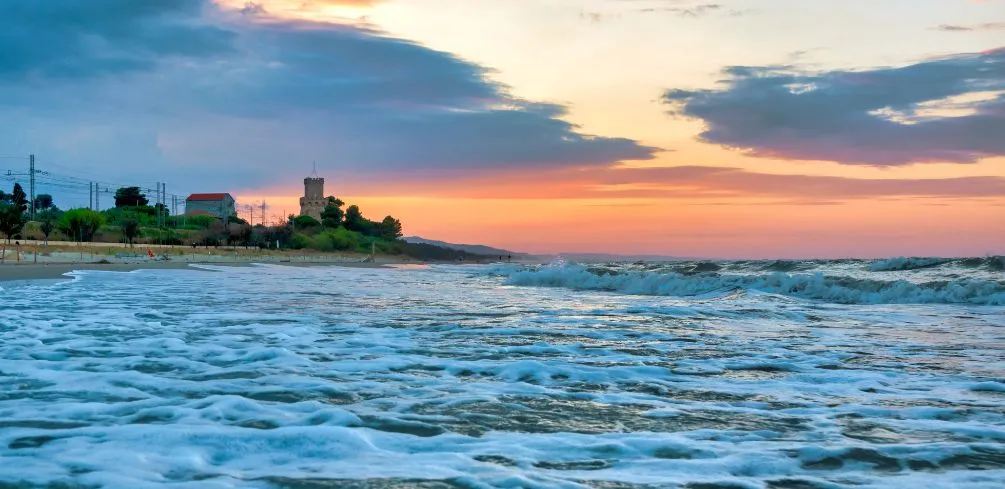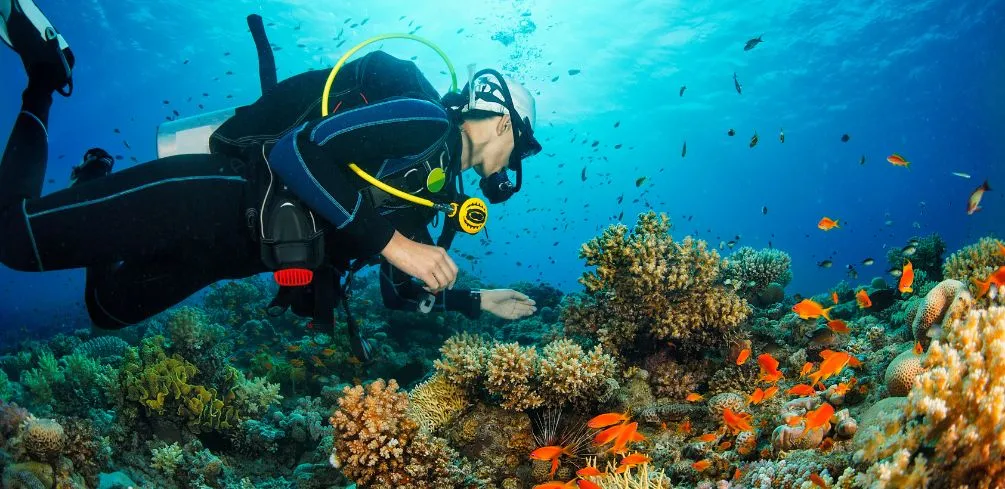The world’s oceans are an integral part of life on earth, providing us with food, medicine, recreation, and more. But marine debris is a growing problem that could be having devastating impacts on marine wildlife. In this article, we’ll be examining the impact of marine debris on our ocean’s inhabitants.
Plastics, fishing nets, and other man-made materials are clogging up the ocean and making it difficult for animals to survive. Marine debris has been linked to increasing levels of plastic ingestion in fish species as well as entanglement in fishing lines and other materials. These issues have caused death or injury to countless sea creatures over the years.
It’s time to take a closer look at how marine debris is affecting our ocean ecosystems. We’ll explore what animals are being affected by this growing problem and discuss possible solutions to help lessen its effects. This article will give you a better understanding of why it’s so important to protect our precious ocean wildlife from the dangers of marine debris.
What Do We Mean By Marine Debris
Do you know what marine debris is? If not, then let’s take a closer look at this environmental hazard. Marine debris, also known as pollution debris or ocean debris, is any solid waste material that enters the ocean from human activities. It can be anything from plastics and rubber to metal and glass. All these materials have a detrimental effect on the environment and marine wildlife.
The most common type of marine debris is plastic. This non-biodegradable material takes hundreds of years to break down in the ocean, meaning it can entangle or poison many types of marine wildlife, such as sea turtles, seabirds, and fish.
Plastic bags, bottles, and packaging are just some of the items that can end up in our oceans due to poor waste management on land. In addition to being an eyesore, plastic also releases harmful toxins into the water, which can further contaminate our seas.
The effects of marine debris go beyond just harming animals and plants; it can also damage coastal infrastructure like bridges, boats, and docks by getting caught in propellers or clogging cooling systems.
Furthermore, it has been estimated that over 11 million metric tons of plastic enter our oceans every year – a staggering amount! So let’s all do our part to reduce marine debris by properly disposing of our waste on land instead of dumping it into the sea.
Sources Of Marine Debris
It’s important for us to understand where marine debris comes from in order to work toward preventing it. Marine litter is the most common source of marine debris, and it can come from both land and sea-based sources.
Plastic pollution from land-based sources is a major problem, with plastic items often washed away in waterways and ending up in the ocean. Fishing gear such as nets, lines, and traps are also major contributors to marine debris in the oceans.
What’s more, ocean dumping is still an issue; this involves disposing of waste items directly into the ocean instead of recycling or disposing of them properly on land. And finally, beach litter is also a source of marine debris. When people visit beaches and leave behind their rubbish without disposing of it responsibly, it can end up in the ocean too.
The vast majority of marine debris is made up of plastic items, which can take hundreds of years to decompose. This means that any plastic item disposed of by humans today will still be around for generations to come.
This highlights just how urgent it is for us to address the issue now before it gets even worse than it already is. We must all do our part in reducing our contribution to marine debris if we are to protect our oceans and their wildlife for future generations.
Effects On Marine Ecosystems
The effects of marine debris on marine ecosystems can be devastating. The increase in ocean pollution due to the accumulation of plastic and other debris is having a detrimental impact on the health of our oceans and their wildlife.
Marine debris affects all levels of marine life, from the smallest plankton to the largest fish and even birds and mammals. It can cause physical harm by entangling or ingesting them, as well as chemical harm when it leaches harmful chemicals into the water. This can lead to the disruption of food chains and webs, which can have drastic consequences for an entire ecosystem.
In addition, marine debris can damage sensitive habitats such as coral reefs and seagrass beds, which provide essential habitats for many species. These habitats are also vital for maintaining healthy ocean chemistry and providing food resources for many species. The destruction of these habitats can have a serious impact on biodiversity in the ocean, leading to a decrease in species richness and abundance.
Thus it is clear that marine debris has far-reaching consequences for our oceans and their wildlife. It is essential that we take steps to reduce our dependence on single-use plastics, properly dispose of waste, and increase awareness about this growing problem so that we can protect our oceans for future generations.
Strategies For Prevention
I will discuss three strategies for preventing marine debris and ocean pollution. Firstly, beach cleanups are essential in removing marine debris from beaches, coastlines, and other areas. Secondly, plastic waste prevention must be a priority for governments and citizens. Thirdly, coastal pollution prevention should also be a priority for citizens, local organizations, and governments.
Beach cleanups are an effective way to remove large amounts of marine debris from beaches, coastlines, and other areas around the world. They can also help raise awareness of the issue of marine debris. Local organizations should be encouraged to organize beach cleanups regularly in order to reduce the amount of plastic waste entering our oceans.
Additionally, it is important that people dispose of their waste properly so that it does not end up in our oceans or on beaches.
Plastic waste prevention is key to reducing the amount of plastic entering our oceans. Governments should implement policies that reduce single-use plastics and encourage businesses to switch to more sustainable packaging materials such as paper or biodegradable plastics. Additionally, citizens should be encouraged to reduce their consumption of single-use plastics and seek out alternatives such as reusable containers or bags made from natural fibers.
Coastal pollution prevention must be a priority for citizens, local organizations, and governments alike. People living in coastal areas should be educated about how to properly dispose of their waste so that it does not end up in our oceans or on beaches.
Furthermore, governments should create regulations that prohibit certain activities from taking place near coasts and promote sustainable fisheries practices so as to minimize damage caused by human activities on coasts. Local organizations should also participate in beach cleanups regularly, as well as educate people about the impacts of marine debris on wildlife and ecosystems.
By implementing these strategies, we can work together toward preventing marine debris and ocean pollution while protecting wildlife habitats around the world. With adequate knowledge, education, legislation, enforcement, and collaboration between individuals, local organizations, and governments, we can make a real difference in reducing marine debris worldwide!
International Efforts To Reduce Pollution
The global community is taking steps to reduce marine pollution and protect marine wildlife. International efforts have been made to secure a healthy ocean environment for future generations. The primary focus is on preventing the introduction of more ocean debris, as well as reducing existing levels of marine pollution.
Here are some of the strategies being implemented by different countries:
- Establishing strict regulations on dumping waste in coastal areas
- Working with industries to reduce plastic packaging and other sources of marine debris
- Developing monitoring systems to track the movement of debris in the ocean
- Educating communities about proper waste disposal techniques
- Encouraging coastal clean-up initiatives
These international efforts show that there is a growing awareness among countries that they need to take responsibility for protecting their marine ecosystems. By implementing these strategies, we can ensure that our oceans remain healthy and free from debris so that all marine life can thrive.
Frequently Asked Questions
What Can Individuals Do To Reduce Marine Debris?
We all have a responsibility to reduce the amount of marine debris in our oceans. Marine debris is a global problem that poses a serious threat to marine wildlife and ecosystems, and individuals can make an impact by taking action.
Preventing marine debris, reducing plastic waste, engaging in marine debris clean-up initiatives, and supporting ocean conservation efforts are all great ways to contribute to ocean health.
One way to prevent marine debris is simply by reducing the amount of single-use plastics that we use every day. By choosing reusable alternatives such as metal straws and shopping bags, we can help reduce the amount of plastic waste that ends up in our oceans. It’s also important to remember to properly dispose of any materials that you might use, so they don’t end up in the environment.
Engaging in local clean-up initiatives is another way for individuals to make an impact on ocean health. Beach clean-ups are one example of a great way for individuals to get involved with their community and contribute towards reducing marine debris.
Plus, when purchasing items made from biodegradable or recycled materials, individuals can support companies who are committed to sustainable practices and ocean conservation efforts.
Individuals play an important role in protecting our oceans from the effects of marine debris. Taking simple steps such as reducing plastic waste, engaging in beach clean-ups, and buying products made from biodegradable materials can all help reduce the negative impacts of marine debris on our oceans and wildlife.
How Long Does It Take For Marine Debris To Decompose?
I’m sure you’ve heard about the growing problem of marine debris and how it affects marine wildlife. But have you ever wondered how long it takes for marine debris to decompose?
While some of the debris may break down quickly, much of it can take a very long time to decompose. In this article, I’ll be discussing the process of marine debris decomposition and exploring why this is such an important issue.
One thing to keep in mind is that different types of marine debris decompose at different rates. Some materials like paper or wood will break down relatively quickly when exposed to water and sunlight, while things like plastic can take hundreds of years to decompose. This means that if we don’t act now, a lot of the marine debris currently in our oceans will remain there for generations.
What’s more, when marine debris does start to decompose, it often releases harmful chemicals into the environment. This can cause serious problems for fish and other aquatic animals who come into contact with these chemicals or ingest them accidentally.
To prevent this from happening, we need to make sure we’re doing everything possible to reduce our use of single-use plastics and dispose of any trash responsibly so that it doesn’t end up in our oceans and waterways.
It’s clear that reducing the amount of marine debris in our oceans is essential if we want to protect our wildlife and preserve our natural resources for future generations.
The only way we can do this is by making smarter choices when it comes to dealing with waste – from using reusable bags when shopping to properly disposing of garbage – so that less ends up in our oceans in the first place. Every little bit helps!
Are There Any Laws That Protect Marine Wildlife From Marine Debris?
Have you ever wondered if there are laws in place to protect marine wildlife from marine debris? It’s an important question to ask, given the amount of ocean debris that is accumulating in our world’s oceans.
With the rising number of plastic bags, discarded fishing gear, and other human-made waste polluting our ocean waters, it’s essential that we look into what legal measures have been taken to protect marine life from this issue.
In terms of protecting marine wildlife from marine debris, there are a few different laws that have been enacted by governments around the world.
For example, in the United States, the Marine Debris Research Prevention and Reduction Act were passed in 2006 with the purpose of reducing the amount of debris entering our nation’s coastal waters. This legislation includes provisions for research into how ocean debris affects wildlife as well as funding for prevention efforts such as beach cleanups and educational programs.
In addition to these federal laws, many states also have their own laws pertaining to marine debris. These laws vary from state to state but generally provide additional protections for ocean wildlife by restricting certain types of activities, such as dumping or discarding garbage or fishing gear within a certain distance from shore. Some states even provide financial incentives for those who take part in beach cleanups or other initiatives aimed at preventing and removing ocean trash.
Overall, it is clear that governments around the world are taking steps to protect both marine wildlife and our environment by enacting laws related to marine debris and its effects on coastal areas. While these efforts are certainly beneficial, more work needs to be done in order to truly reduce the amount of trash entering our oceans each year.
One way we can all help is by simply reducing our use of single-use plastics, which contribute significantly to ocean pollution worldwide.
How Does Marine Debris Affect Coastal Communities?
When it comes to the effects of marine debris, coastal communities are often the most impacted. The presence of plastic and other debris in the ocean can have a huge impact on coastal communities, from their health and safety to their access to resources.
Marine debris can be washed up on shorelines or collected by fishing vessels, both of which have the potential to cause harm or disruption to local populations.
Aside from directly affecting coastal communities, marine debris has an indirect effect on marine wildlife. It can disrupt food webs and cause physical injury or death for many species. The decomposition of marine debris can also release toxic chemicals into the environment, further endangering wildlife.
In order to protect both marine wildlife and coastal communities, it is important that we do our best to reduce marine debris and its environmental impacts.
One way we can help mitigate these effects is by increasing awareness and educating people about the issue. We need to ensure that everyone understands how their actions contribute to this problem and how they can help reduce it.
We also need better waste management systems in place that are designed with sustainability in mind so that people do not produce more garbage than they need to. By actively working together, we can protect both our environment and our coastal communities from the dangers of marine debris.
What Is The Most Common Type Of Marine Debris?
As we look at the ocean today, it is undeniable that one of the most pressing issues is marine debris. From plastic bags to discarded fishing nets, this type of pollution has an immense impact on our coastal communities and marine wildlife. But what is the most common type of marine debris?
When it comes to marine debris, there are many different sources that contribute to its presence in the ocean. Whether it’s discarded from recreational activities, lost fishing gear, or directly entering through rivers and streams, all types of debris end up in the sea.
Of these sources, one of the most common types of marine debris is plastic. This material often finds its way into our oceans either through improper disposal or by being blown away from landfills or other areas where it was left behind.
Plastic is a major source of marine pollution due to its durability and slow rate of decomposition. It can take hundreds of years for some plastics to break down and, as a result, can accumulate in large quantities over time. Not only does this have a negative impact on our environment, but it also has serious effects on wildlife, such as entanglement and ingestion, which can lead to injury or death.
Marine debris affects us all, and it’s important that we work together to reduce its presence in our oceans. By taking proactive measures such as proper waste disposal and reducing single-use plastics when possible, we can help keep this issue under control before it takes even more toll on our environment and wildlife.
Conclusion
The impact of marine debris on marine wildlife is a serious issue that requires our immediate attention. Despite the fact that some may argue that this isn’t our problem to fix, we must act now if we want to protect our precious oceanic creatures from harm.
Individuals have an important role to play in reducing the amount of marine debris entering the oceans. We can choose more sustainable products and packaging, properly dispose of waste, and participate in beach cleanups when possible. There are also laws in place that protect marine wildlife from marine debris, so it’s important to be aware of them and comply with regulations.
Coastal communities are particularly vulnerable to the effects of marine debris due to their proximity to the ocean. The most common type of marine debris is plastic, which takes centuries for nature to break down, making it one of many long-term threats posed by human activities on our planet.
We all need to take responsibility for protecting our oceans and their inhabitants from further damage caused by marine debris – both now and in the future. It is only through collective action that we will be able to create lasting change and benefit both ourselves and future generations.





